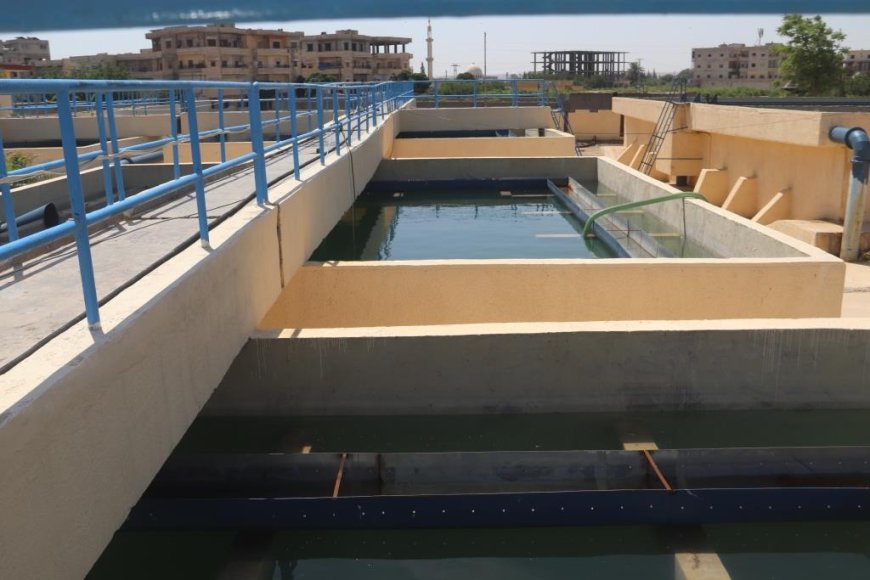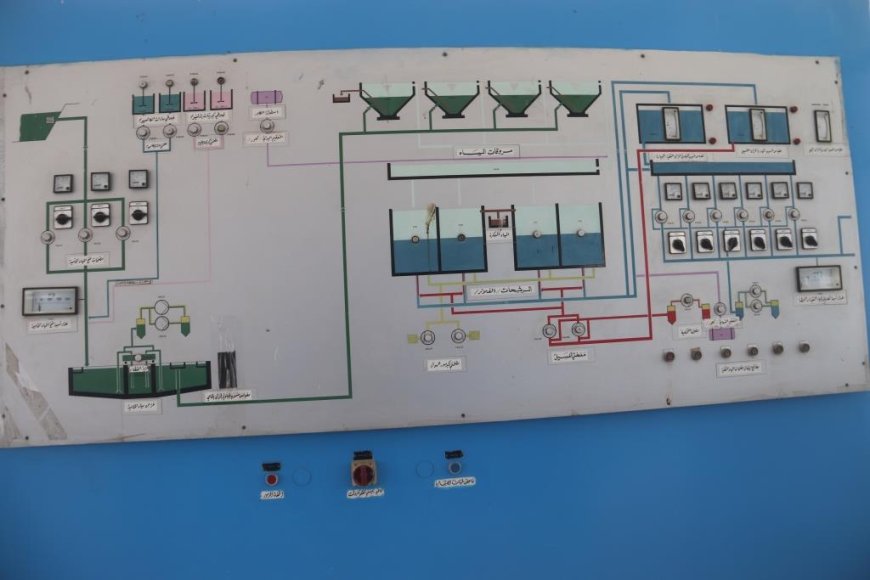Dropping water level of Euphrates river strikes Raqqa drinking water stations
Some of the drinking water stations in Raqqa canton are at risk of being taken out of service if the level of water in the Euphrates River drops further. Meanwhile, the Water Authority is disinfecting drinking water systems to prevent contamination and preparing plans to avert the crisis.
The drop in the level of water of the Euphrates River in Raqqa canton has led to problems in the agricultural and water drinking sectors. Turbidity and pollution have increased, Raqqa canton's co-chair of Water Authority, Hussein al-Jarjab, stated.

North and East Syria's Energy Authority released a warning of a rising Euphrates River water crisis in a statement when the level of the Euphrates Dam lake dropped to approximately 6 meters. The Authority also introduced recommendations to assist in mitigating the crisis.
the Energy Authority explained in the statement that the rate of the water level of the Euphrates River witnessed a steep decline during April, which adversely affected all sectors, but especially agriculture, livestock, the environment, and drinking water.
Al-Jarjab further added, "For more than a week, the level of the Euphrates River has been significantly reduced, impacting the quality and quantity of drinking water being supplied to villages and neighborhoods."
The ministry believes that there are tens of stations along the Euphrates River that pump water to the city and countryside. Certain stations close down and resume work depending on the river's level of water.
Because of this decline, rural and urban water network pollution has increased, causing problems to the inhabitants. This "turbidity" is addressed by cleaning the city's water network, for which 56 valves are allotted for flushing the network.
Al-Jarjab also stated that the central lab in the district conducts thorough testing of the network to regulate turbidity as well as degree of pollution and reports daily to the city's department of water, which also orders an evening workshop for flushing the network based on the report given by the central laboratory with the aim of reducing turbidity in the water.
At the same time, water continues to be supplied to the residents. The department co-chair explained, "In the next few days, we do not know if the water level is maintained at this level or not, because the level at present is very low, at the minimum required for the functioning of drinking water stations."
In his conclusion, Al-Jarjab appealed to the people to make the utilization of water logical, limiting it to drinking water alone, and not using it in agriculture.
According to North and East Syria's Dam Administration, current water flow is less than 250 cubic meters per second, while the 1987 international agreement requires a 500 cubic meters per second flow. It has not been supplemented according to the agreement.
T/S
ANHA



















